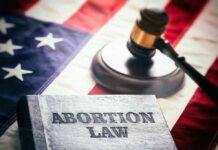
Supreme Court allows Virginia felons to continue their fight for voting rights as justices unanimously reject the state’s attempt to dismiss their lawsuit challenging lifetime disenfranchisement.
Key Takeaways
- The Supreme Court unanimously rejected Virginia’s request to dismiss a lawsuit challenging the state’s lifetime voting ban for convicted felons.
- The case, O’Bannon v. King, will now proceed through the legal system, potentially affecting felon voting rights nationwide.
- No justices dissented from the Court’s decision, which came as an unsigned order without explanation.
- The lawsuit argues that permanently stripping voting rights from felons infringes on their fundamental democratic rights.
- This case highlights the ongoing national debate about felon disenfranchisement and voting rights restoration.
Supreme Court Rejects Virginia’s Dismissal Request
In a significant development for voting rights, the Supreme Court has unanimously rejected Virginia’s attempt to dismiss a lawsuit challenging the state’s lifetime voting ban for convicted felons. The case, titled O’Bannon v. King, can now proceed through the legal system after the Court issued its decision as an unsigned order. Notably, not a single justice dissented from this decision, suggesting potential judicial concerns about the constitutionality of permanent felon disenfranchisement. The Court, following its standard practice in such preliminary matters, did not explain its decision.
The Constitutional Challenge
The lawsuit was initiated by Tati Abu King and Toni Heath Johnson with support from the American Civil Liberties Union (ACLU). Their central argument challenges the constitutionality of stripping voting rights from felons permanently, claiming it violates fundamental democratic principles. King’s personal experience illustrates the complex nature of Virginia’s current system – he had previously regained his voting rights after a first conviction, only to lose them again following a second felony offense. This case represents more than individual grievances; it strikes at the heart of state authority to permanently bar citizens from participating in democracy.
I’ve previously criticized amicus briefs that get facts and studies wrong, misleading courts in the process. Let me take to task one from a group I otherwise support, the @ReasonFdn .
The en banc Fifth Circuit is hearing Hopkins v. Hosemann, a SPLC suit against Mississippi over…
— tedfrank (@tedfrank) December 19, 2023
Virginia’s Current System
Virginia remains one of the strictest states regarding felon voting rights. Under its constitution, anyone convicted of a felony automatically loses their right to vote for life. The only path to regaining this right is through individual restoration by the governor – a process that critics argue is arbitrary, inefficient, and potentially influenced by political considerations. This system places Virginia among a shrinking minority of states that maintain lifetime bans, as many others have moved toward automatic restoration upon completion of sentences or other less restrictive approaches. This lawsuit directly challenges whether such permanent disenfranchisement meets constitutional standards.
Broader Implications
The Supreme Court’s decision to allow this case to proceed could have far-reaching consequences beyond Virginia. Currently, states maintain a patchwork of different approaches to felon voting rights, creating inconsistent democratic participation opportunities based solely on geography. Some states automatically restore voting rights upon release from prison, others after completion of parole or probation, while a few, like Virginia, maintain lifetime bans with gubernatorial discretion. A ruling in this case could potentially establish new constitutional standards that would affect felon disenfranchisement policies nationwide, potentially forcing states with strict bans to liberalize their approaches.
Conservative Perspectives
For conservatives concerned about election integrity, this case presents important considerations. While many support appropriate consequences for criminal behavior, permanent disenfranchisement raises questions about proportionality and redemption. The notion that citizens who have paid their debt to society might remain permanently excluded from civic participation runs counter to traditional conservative values of individual responsibility and second chances. Furthermore, the arbitrary nature of governor-controlled restoration systems grants excessive power to the executive branch without clear standards or consistent application. As this case proceeds, it will test whether lifetime voting bans are consistent with constitutional principles and American ideals.












